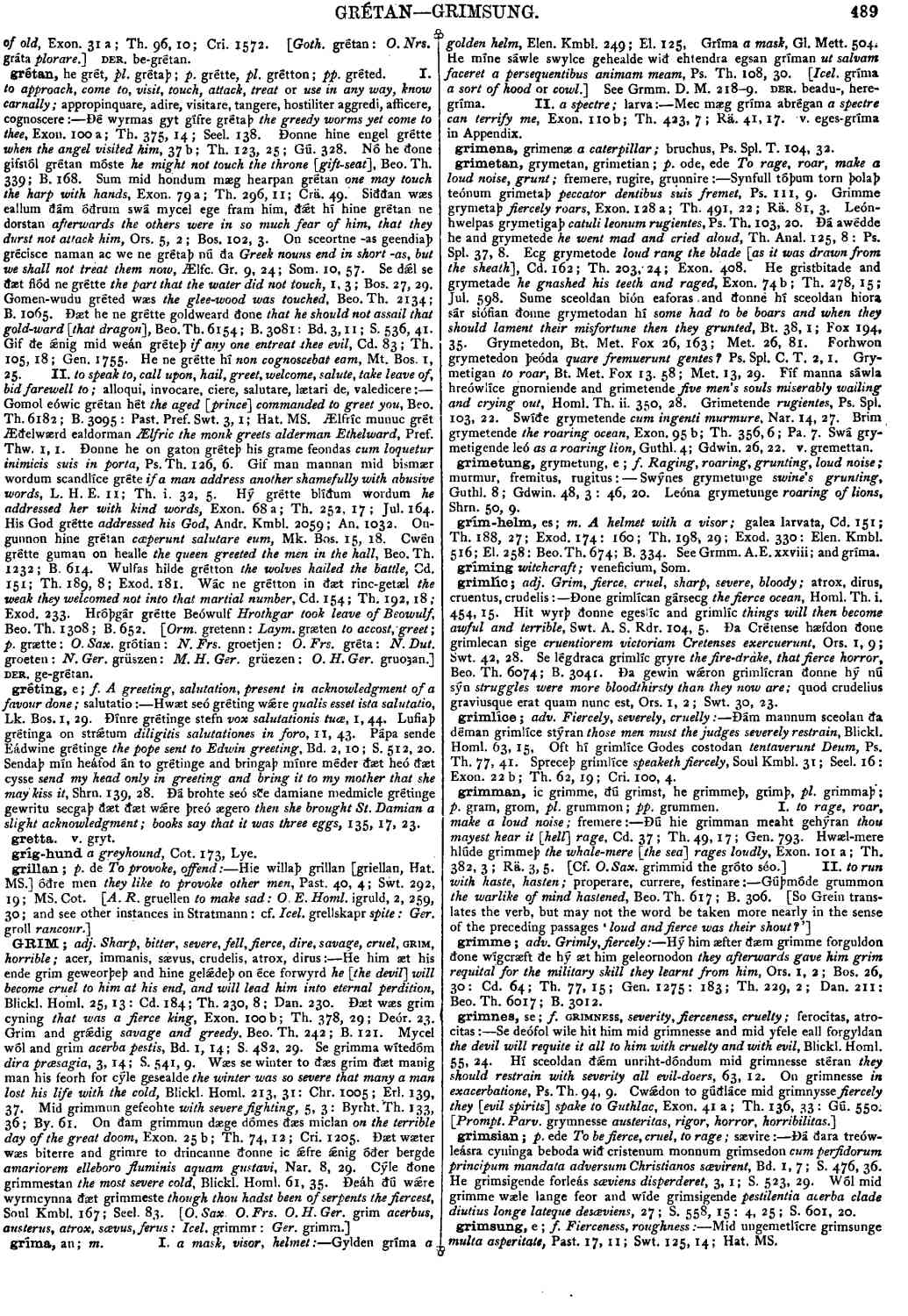GRIM
- adjective
-
He him æt his ende grim geweorþeþ and hine gelǽdeþ on éce forwyrd
he [the devil] will become cruel to him at his end, and will lead him into eternal perdition,
- Blickl. Homl. 25, 13: Cd. 184; Th. 230, 8; Dan. 230.
-
Ðæt wæs grim cyning
that was a fierce king,
- Exon. 100 b; Th. 378, 29; Deór. 23.
-
Grim and grǽdig
savage and greedy.
- Beo. Th. 242; B. 121.
-
Mycel wól and grim
acerba pestis,
- Bd. 1, 14; S. 482, 29.
-
Se grimma wítedóm
dira præsagia,
- 3, 14; S. 541, 9.
-
Wæs se winter to ðæs grim ðæt manig man his feorh for cýle gesealde
the winter was so severe that many a man lost his life with the cold,
- Blickl. Homl. 213, 31: Chr. 1005; Erl. 139, 37.
-
Mid grimmun gefeohte
with severe fighting,
- 5, 3: Byrht. Th. 133, 36; By. 61.
-
On ðam grimmun dæge dómes ðæs miclan
on the terrible day of the great doom,
- Exon. 25 b; Th. 74, 12; Cri. 1205.
-
Ðæt wæter wæs biterre and grimre to drincanne ðonne ic ǽfre ǽnig óðer bergde
amariorem elleboro fuminis aquam gustavi,
- Nar. 8, 29.
-
Cýle ðone grimmestan
the most severe cold,
- Blickl. Homl. 61, 35.
-
Ðeáh ðú wǽre wyrmcynna ðæt grimmeste
though thou hadst been of serpents the fiercest,
Soul- Kmbl. 167; Seel.
83.
Bosworth, Joseph. “GRIM.” In An Anglo-Saxon Dictionary Online, edited by Thomas Northcote Toller, Christ Sean, and Ondřej Tichy. Prague: Faculty of Arts, Charles University, 2014. https://bosworthtoller.com/17507.
Checked: 0